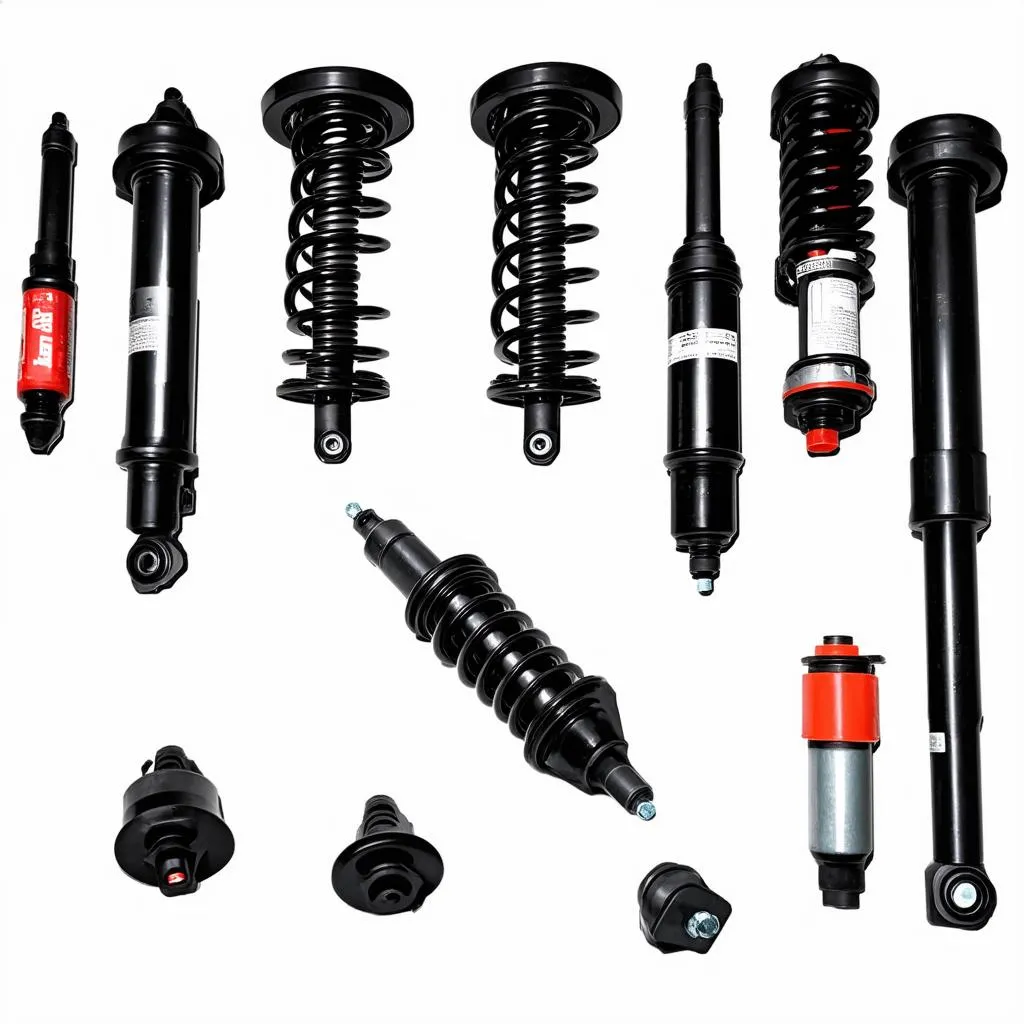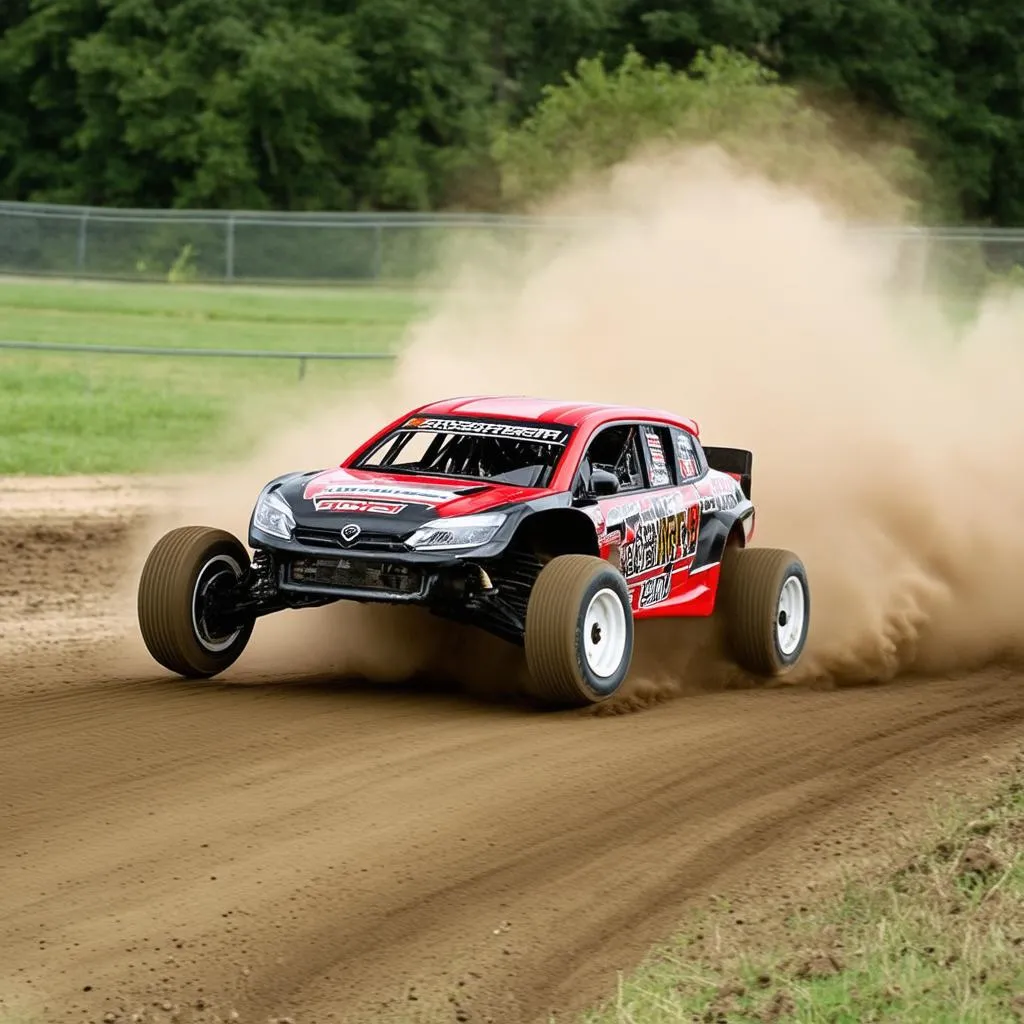RC Car Shocks: Your Guide to Tuning for Performance
Have you ever watched an RC car zoom across a dirt track, effortlessly absorbing bumps and jumps? Ever wondered how those little vehicles can handle such rough terrain? The answer lies in a crucial component: Rc Car Shocks. These miniature marvels are essential for performance, influencing everything from speed to stability.
Let’s dive into the world of RC car shocks, exploring why they’re so important and how you can tune them for optimal performance.
Understanding the Importance of RC Car Shocks
Whether you’re a seasoned racer or a hobbyist, understanding RC car shocks is crucial. Here’s why:
1. Smoother Rides: Imagine driving down a bumpy road in a car with no suspension – not a pleasant thought, right? RC car shocks do the same job as their full-sized counterparts, absorbing shocks from jumps and uneven surfaces. This ensures your RC car maintains contact with the ground, crucial for control and handling.
2. Enhanced Handling: Ever taken a corner too fast and felt your car sway? RC car shocks prevent this by keeping your vehicle stable. They dampen oscillations, ensuring your RC car stays planted, especially during high-speed maneuvers.
3. Improved Traction: For RC enthusiasts, grip is everything. Well-tuned shocks keep your tires glued to the track, maximizing traction and improving acceleration, braking, and cornering.
Think of it this way: John Smith, a renowned RC car mechanic in Phoenix, Arizona, once said, “RC car shocks are like the unsung heroes of your vehicle – they might not be flashy, but they’re essential for unlocking true performance.”
Choosing the Right RC Car Shocks
Selecting the right shocks for your RC car depends on several factors:
1. Vehicle Type: A monster truck demands different shocks than an on-road racer. Consider your vehicle’s intended use and terrain.
2. Driving Style: Are you an aggressive driver or prefer smoother runs? Your driving style impacts the type of shocks you’ll need.
3. Shock Oil: Shock oil viscosity (thickness) affects how quickly your shocks compress and rebound. Thicker oil provides more damping, ideal for rough terrain.
4. Spring Rate: The stiffness of your shock springs determines how resistant your car is to compression. Stiffer springs are better suited for heavier vehicles or jumps.
 RC car shocks types
RC car shocks types
Tuning Your RC Car Shocks
Tuning your shocks is where the magic happens. It’s about finding the perfect balance between comfort and performance. Here are some tips:
1. Adjusting Ride Height: Ride height is the distance between the ground and your RC car’s chassis. Lowering the ride height can improve handling but might make your car bottom out on rough terrain.
2. Fine-tuning Shock Oil: Experiment with different shock oil weights to achieve the desired damping. Start with the manufacturer’s recommended weight and adjust from there.
3. Spring Rate Adjustments: Switching to stiffer or softer springs can drastically impact your RC car’s handling. Consider the weight of your vehicle and driving conditions.
4. Testing and Fine-Tuning: There’s no one-size-fits-all approach to RC car shock tuning. The key is to test different settings and make incremental adjustments until you achieve the desired performance.
 RC car racing on a track
RC car racing on a track
Common RC Car Shock Issues
Like any mechanical component, RC car shocks can encounter issues. Here are some common problems:
1. Leaking Shocks: Oil leaks can significantly affect performance. Inspect your shocks regularly for signs of wear and replace worn-out seals.
2. Bent Shock Shafts: Jumps and impacts can bend shock shafts, hindering performance. Straighten or replace bent shafts to restore proper function.
3. Worn-out Shock Bodies: Over time, shock bodies can wear down, affecting performance. Consider replacing worn-out shocks to maintain optimal performance.
Ready to Take Your RC Experience to the Next Level?
Tuning your RC car shocks can seem daunting, but it’s a rewarding process that can significantly enhance your driving experience.
For more tips on RC car maintenance and upgrades, check out our articles on How to Wire a Car Lift and The Front-End of a Car.
Need help with your RC car or looking to explore the world of automotive diagnostics? Don’t hesitate to contact us on WhatsApp at +84767531508. Our team of auto experts is available 24/7 to assist you.
